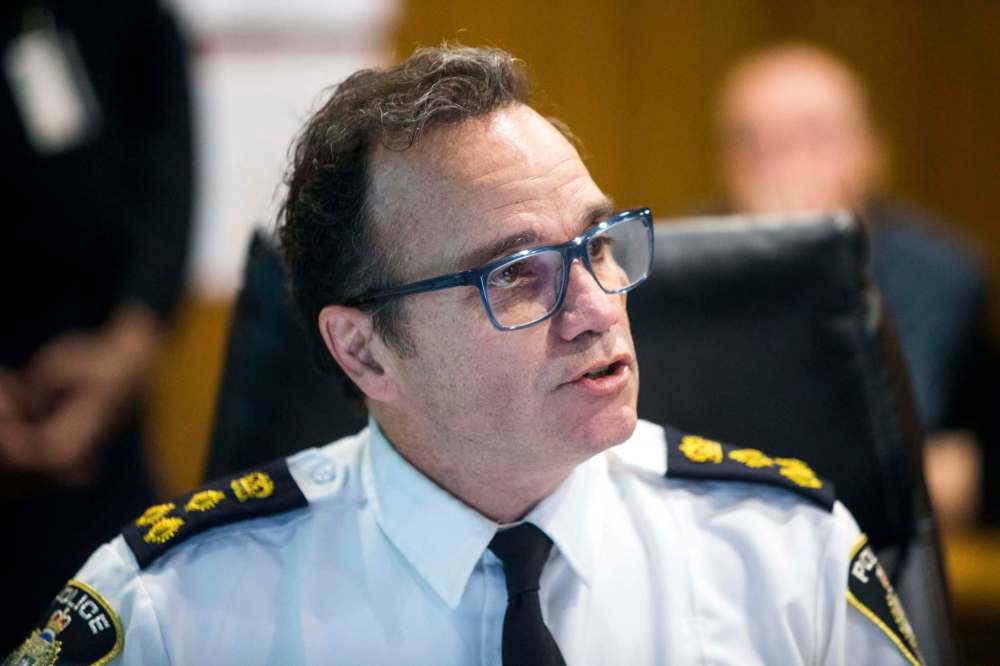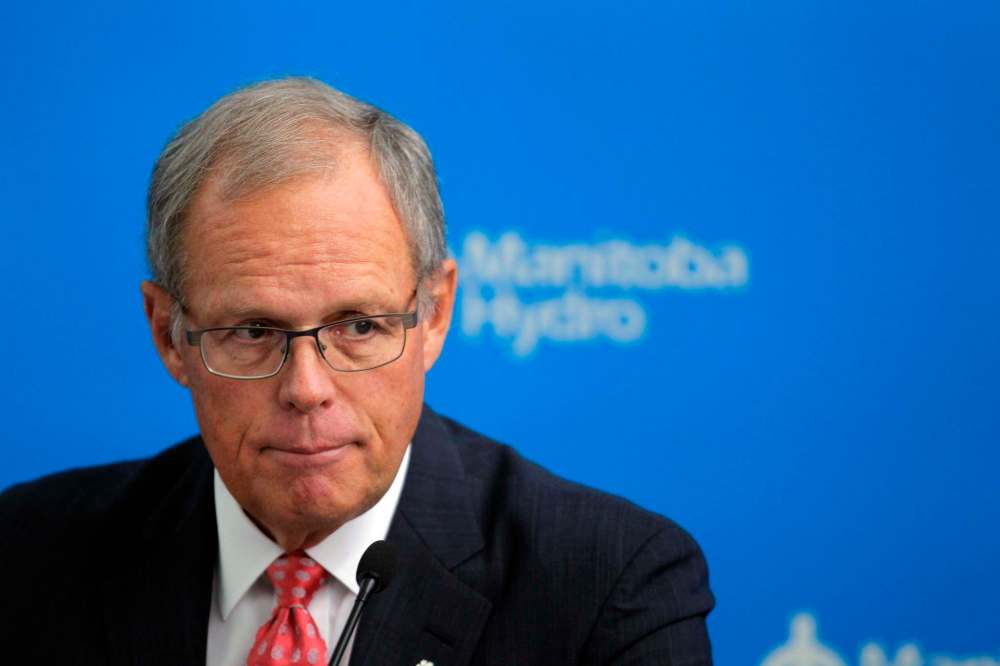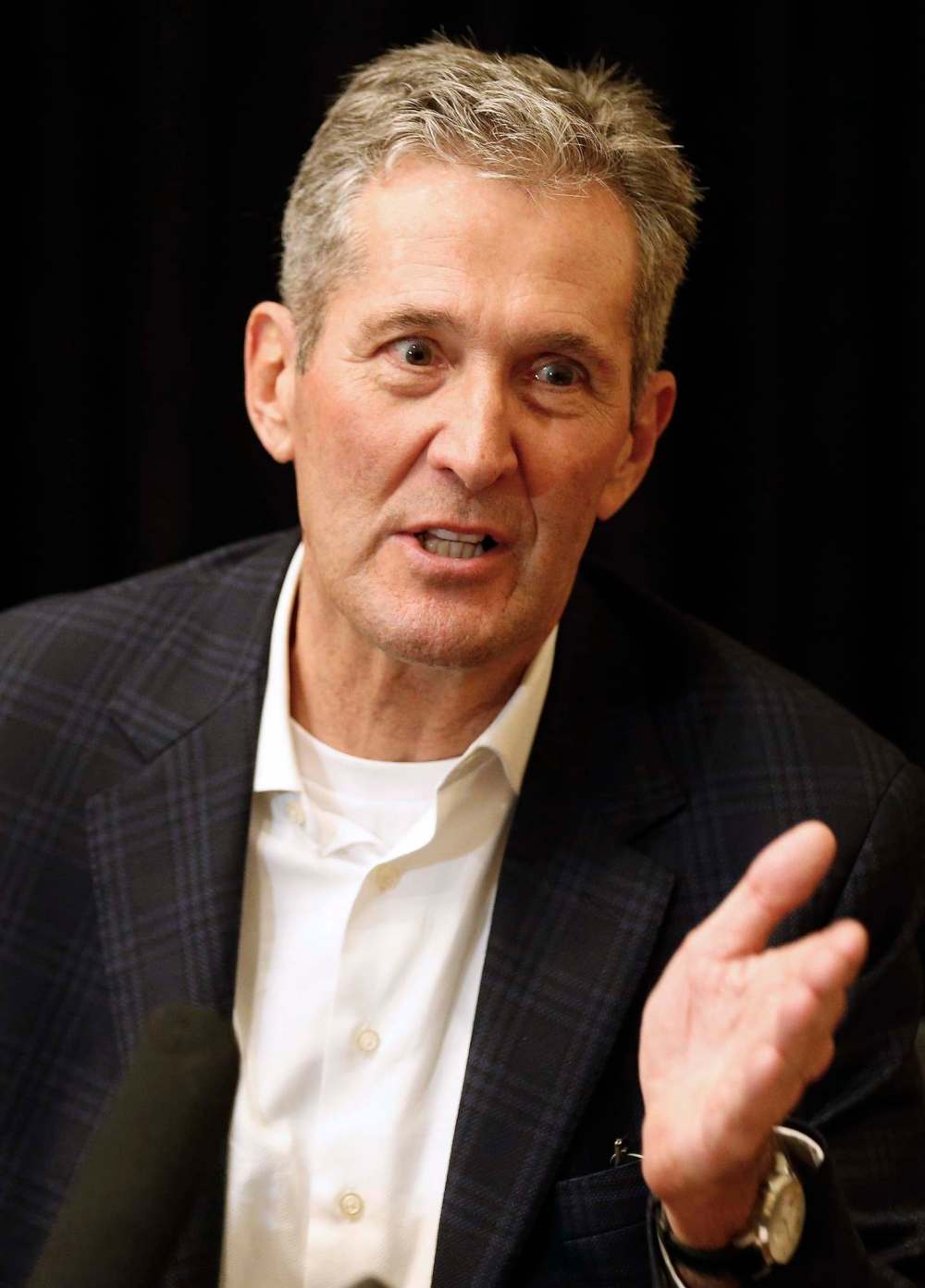As a Hydro-MMF deal analyst, Smyth makes a pretty good police chief
Read this article for free:
or
Already have an account? Log in here »
To continue reading, please subscribe:
Monthly Digital Subscription
$0 for the first 4 weeks*
- Enjoy unlimited reading on winnipegfreepress.com
- Read the E-Edition, our digital replica newspaper
- Access News Break, our award-winning app
- Play interactive puzzles
*No charge for 4 weeks then price increases to the regular rate of $19.00 plus GST every four weeks. Offer available to new and qualified returning subscribers only. Cancel any time.
Monthly Digital Subscription
$4.75/week*
- Enjoy unlimited reading on winnipegfreepress.com
- Read the E-Edition, our digital replica newspaper
- Access News Break, our award-winning app
- Play interactive puzzles
*Billed as $19 plus GST every four weeks. Cancel any time.
To continue reading, please subscribe:
Add Free Press access to your Brandon Sun subscription for only an additional
$1 for the first 4 weeks*
*Your next subscription payment will increase by $1.00 and you will be charged $16.99 plus GST for four weeks. After four weeks, your payment will increase to $23.99 plus GST every four weeks.
Read unlimited articles for free today:
or
Already have an account? Log in here »
Hey there, time traveller!
This article was published 25/09/2019 (2267 days ago), so information in it may no longer be current.
Winnipeg police Chief Danny Smyth got in a little over his head during a speech at the Manitoba Metis Federation’s annual general assembly over the weekend.
Smyth was commenting on a proposed $67.5-million payout by Manitoba Hydro to the MMF, which was rejected by Premier Brian Pallister last year. He called Pallister’s decision “arbitrary” and lamented that the issue had to go to court.
Smyth was clearly out of his element on this one.
“It’s unfortunate that the courts will be asked to determine whether this was a binding agreement or not,” Smyth said in a video recording of his speech, obtained by the Free Press.
The police chief went on to say the Pallister government’s decision not to approve the payout didn’t “exactly scream inclusion” with Indigenous people. He said the decision left him wondering “if people have really grasped the lessons of our shared history.”
This isn’t exactly Smyth’s area of expertise. He’s a good police chief. He strikes the right balance between law enforcement and crime prevention. But his comments clearly show he knows little about this file. It’s odd he would comment on it in his official capacity as police chief.
The controversial $67.5-million payout to the MMF was never a done deal. The chairman of Manitoba Hydro at the time, Sandy Riley, made that clear last year.

He said the proposed payout was unlike any Hydro had negotiated with Indigenous groups in the past and that the Crown corporation knew it had to take it to the province for approval.
“We knew it was precedent setting, and we knew it was different than the other agreements that we had done,” Riley said at the time. “We wanted to discuss it with (the provincial government) and explain to them why we thought it was a good deal and make sure that they were comfortable with it.”
The provincial government wasn’t comfortable with it. So they nixed it.
The payout was made up of a $37-million trust fund and annual payments over 50 years. In exchange for the money, the MMF agreed not to challenge future Hydro projects, either in court or during the licensing-approval process.

Riley called it buying “peace in the valley for 50 years” and said it was a “very attractive price” to avoid costly challenges by the MMF in the future.
But it wasn’t a done deal until the province signed off on it, he said.
Pallister chose some unfortunate words — as he often does — to describe the proposed payout, calling it “hush money” and “persuasion money.” His abrasive and confrontational style often rub people the wrong way. His choice of words are sometimes not becoming of a premier.
But his decision was the right one. This wasn’t compensation to the MMF for specific Hydro projects that may have infringed on their hunting or other rights. This was blanket protection for Hydro against future projects, including unidentified ones.
The Supreme Court of Canada has made it clear that while governments and their agencies have a legal duty to consult with First Nations and other Indigenous groups on resource projects, it has to be related to specific projects. It can’t be based on a speculative impact.

The MMF and the Pallister government disagree on the outcome of this issue. As a result, the MMF is going to court to seek relief, which is its right. The organization goes to court often. Sometimes it wins and sometimes it loses.
There’s nothing wrong with taking legal action to resolve an issue, as Smyth alleges. Indeed, it is through court decisions that we gain clarity on governments’ constitutional duty to consult.
This file could have been handled better by the premier. There should have been face-to-face communication with the former Hydro board (which resigned en masse following the MMF conflict) on this and many other issues.
But Riley said he didn’t resign because of the MMF issue alone. He called those suggestions “a smokescreen.” He said it was because Pallister refused to meet with him and the board on a number of issues, including on the financial crisis facing Hydro.
Smyth has a right to his opinion. But he’s woefully misinformed on this one.
tom.brodbeck@freepress.mb.ca
Winnipeg police chief takes shot at province in Hydro-MMF case

Posted:
Winnipeg's top cop has weighed in on a bitter dispute between the Manitoba Metis Federation and the provincial government led by Brian Pallister, describing the province's actions as "arbitrary."

Tom has been covering Manitoba politics since the early 1990s and joined the Winnipeg Free Press news team in 2019.
Our newsroom depends on a growing audience of readers to power our journalism. If you are not a paid reader, please consider becoming a subscriber.
Our newsroom depends on its audience of readers to power our journalism. Thank you for your support.













